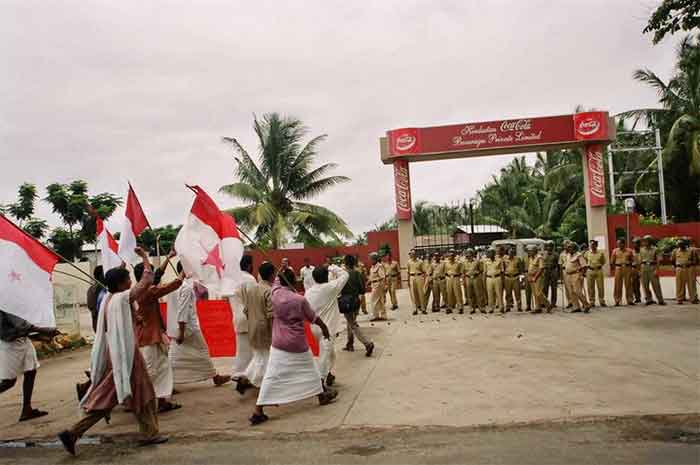
The Coca Cola bottling unit in Plachimada, Palakkad, lying unused since 2004, will soon be converted into a Covid care centre. Ecologist Dr S Faizi, who served as an expert member on the high powered committee set up by the state in 2009 to study the impact of the bottling plant on the local ecology and community, on Wednesday wrote to Chief Minister Pinarayi Vijayan reminding him that it is illegal to accept charity from someone accused of crime – there is a criminal case pending against Coca Cola under the SC/ST Atrocities Prevention Act at a Special Court in Mannarkad.
Dr Faizi said Chittur block in Palakkad district is poorly served, and a Covid facility would be a good idea, given that the number of those testing positive has been going up. “However, the government should enable the panchayat to set up the Covid care facility by legally taking over the Cola plant compound, using provisions of the Disaster Management Act, 2005,” Dr Faizi wrote.
The high powered committee of which Dr Faizi was part had estimated damage caused by the plant to the people of the area at Rs216 crore, in its report submitted in 2010. “The multinational company that has subverted compensation legislation created by the assembly should be issued notice to pay the compensation determined by the HPC (high powered committee),” he wrote, adding that the government must not accept any funds from Coca Cola under Corporate Social Responsibility.
Dr Faizi also points out that the Cola company had been instructed by the Supreme Court monitoring committee to provide piped water to all households in Placimada village at their cost. Besides leaving groundwater in the area contaminated and causing soil degradation that led to poor yield in agriculture and from milch animals in the area, women from the local tribal community were forced to head out long distances to fetch water, leading to loss of wages.
In his letter to the chief minister, Dr Faizi also questioned the role of the Kerala State Pollution Control Board, that had issued show cause notice to the Cola company in 2007 under the Water Act, but not followed it up with a case filed in court. “It is all the more important that the PCB should file case against the Cola company under the Water Act,” he wrote.
In July 2017, global beverage behemoth Coca Cola made a submission before the Supreme Court saying it had no intension of resuming operations at its plant in Plachimada. The bottling plant in Plachimada was established in 1999 on a 38-acre plot in an area that was home to a predominantly tribal population, majority of whom were farmers. Six bore wells in the compound drew out water, affecting the farms of the tribal community.
Slurry from the plant was sold to farmers as fertilizer, but research by scientists at the University of Exeter in the UK showed that it contained dangerous levels of toxic metals including cadmium, known to cause cancer. Research conducted by the Indian Institute of Science, Bangalore, also proved that groundwater in Plachimada had been affected by the large quantities drawn out; dissolved minerals were at dangerously high levels. By 2002, farmers had begun to mobilize and seek closure of the bottling plant.
The Perumatty panchayat in which Plachimada is located, refused to extend the licence to operate of this plant, citing adverse effects on groundwater and pollution, which affected the yield of local farmers. This was challenged by the company in the Kerala High Court, which directed the multinational company to approach the Local Self Government Department of the state government – that department overruled the panchayat, and the matter wound its way through the courts. The plant lay in disuse since 2004, but in 2005 the Supreme Court granted Coca Cola permission to draw out five lakh litres of water per day.
Meanwhile, farmers and villagers continued their agitation and in 2017, Coca Cola stated in the Supreme Court that it had no intention of continuing operations in Plachimada.
Rosamma Thomas is an independent journalist
GET COUNTERCURRENTS DAILY NEWSLETTER STRAIGHT TO YOUR INBOX











































